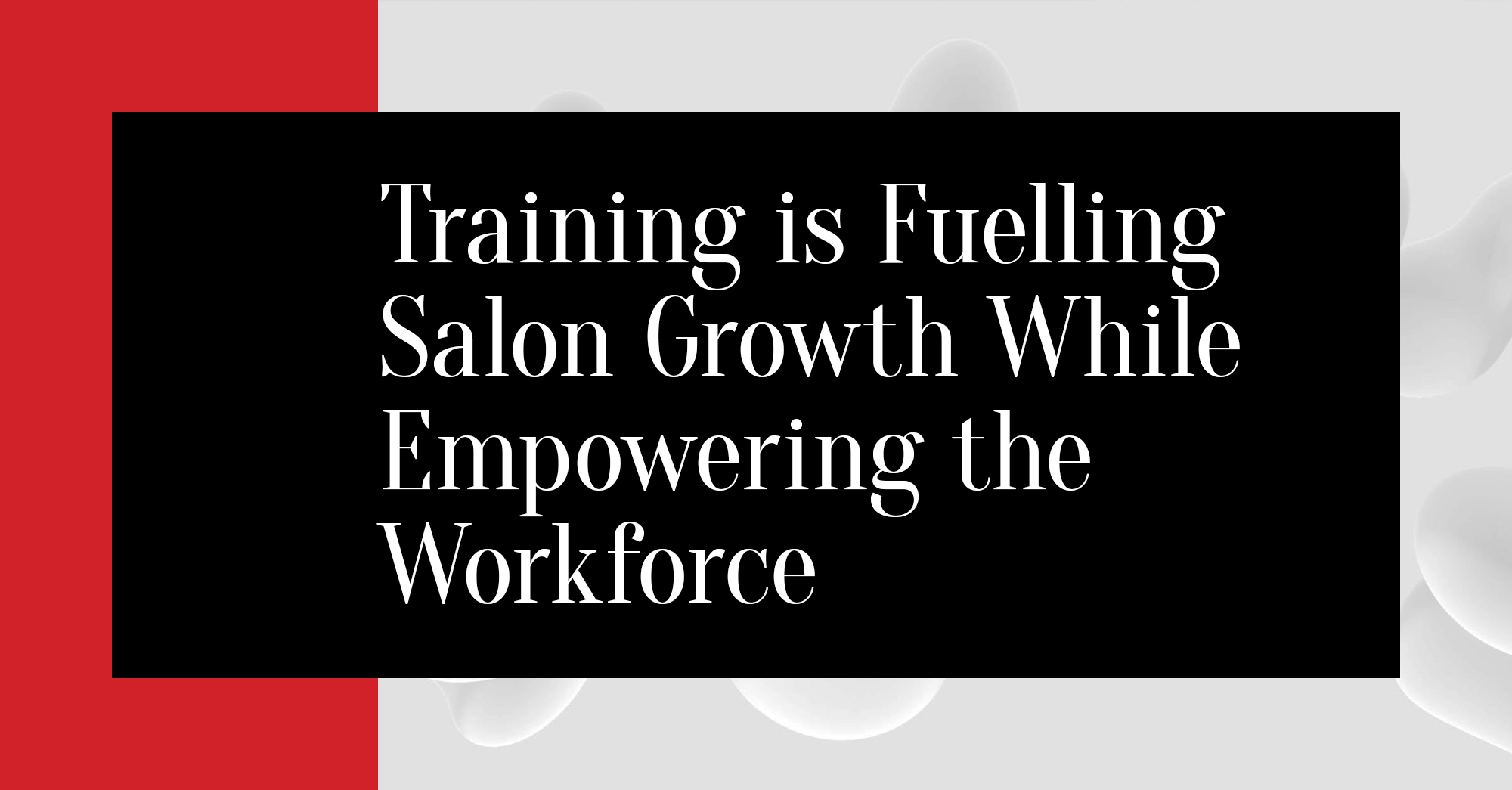
Is training an ongoing priority in your salon? If not, it should be.
The ‘post-pandemic rebound’, in which salon owners saw their revenues and foot fall recovering strongly after the pandemic, is now starting to slow. With more salons opening, skilled staff shortages and overall salon productivity dipping, salon owners need to find the fuel required to power through the next phase of business growth, and according to our Founder and CEO, Valerie Reynaert, that fuel is training.
Employee training is an integral part of any business and the goal is to empower your staff to become industry professionals who deliver outstanding customer service. Unfortunately, many salon owners do not see training as an investment.
Valerie shares that “When training is seen as an investment and becomes part of your long-term strategy, it becomes a tool that empowers your staff, builds loyalty, retains quality talent as well as builds your business and increases profitability. If you want your salon to have a competitive edge, the first step you can take in that direction is having a well-trained workforce.” So why should salon owners take heed of Valerie’s advice?
Although available research in the beauty industry is limited, a survey undertaken by Training Magazine, showed that in other industries, companies who offer comprehensive training programs are 24% more likely to achieve higher market share in their respective industries. Training can have an especially significant impact in service related industries, with research completed by Training Magazine showing that organisations that invest significantly in employee development have 218% higher customer satisfaction and 24% higher profit margins compared to companies that invest minimally in training.
In 2022 the PwC Middle East Workforce Hopes and Fears Survey , which surveyed 52,000 respondents across the region, working at all levels of business, found that in our post-pandemic world, employees are thinking more carefully than ever about their career, with around 30% of Middle East respondents saying they were ‘extremely likely’ or ‘very likely’ to look for a new job in the next year, that equates to 1 in 3 people and is significantly higher than compared with a global survey average of 19%.
The report goes on to say that the best way for employers in the Middle East, like their global counterparts, to resolve employee anxieties is to build loyalty and trust by investing in training programmes that upskill employees, for which there will be no shortage of participants.
The report states, “Any employer who is in doubt should take on board the following finding: more than 60% of respondents in the Middle East said some kind of specialist training was a necessity in their jobs, substantially higher than the global average (48%). Some 75% of the employees surveyed in Kuwait, 60% in Qatar, 58% in Saudi Arabia and 46% in the UAE believed their country had a shortage of people with specialised skills. However, respondents in the region were more confident than the global survey average (47% vs 40% globally) that their employers were prioritising upskilling.”
The trends identified in that report are already being seen ‘on the ground’ in other service related industries in the Middle East with the Group Head of Learning and Development at Dubai-based retailer, Chalhoub Group, Zaur Shiraliyev being quoted in a Fast Company ME article as saying that “In the post-pandemic world, just like we are observing changes in consumer behaviors from a retail perspective, we are observing huge changes in employee preferences and choices. Well-being, purpose, and learning are becoming the key differentiators in an employer’s choice. Learning is the new currency.”
This insight is being reinforced through our own daily interactions with salon owners and staff across the region.
“I am having more conversations around training and upskilling or multi-skilling staff than I have had in recent years” shares Valerie. “Salon owners have realised that getting customers through the door is only the first part of the process and that their staff are not always equipped to maximise the in-salon opportunities.” This is where training steps in and delivers results to the bottom line.
Our Training & Development manager, Chanté Jacobs, is receiving similar feedback from salon staff who are expressing their interest and engagement in the training which she delivers. She shares that “I am seeing salon staff really getting involved in the training process. They don’t just sit quietly and wait for the end, they ask questions, discuss solutions and really engage with the material that I am delivering.”
In summary, the benefits of training for your business are many and include:
For your employees, the benefits are numerous too. Training:
Investing in employee training should be a top priority for our industry as it creates a win-win situation that positions salons for success while nurturing and empowering their workforce. Implementing continued training produces guaranteed quantifiable benefits and you will see a return on your investment, without any doubt.
Terms & Conditions. © 2023 by V R B Management Consulting Co. LLC